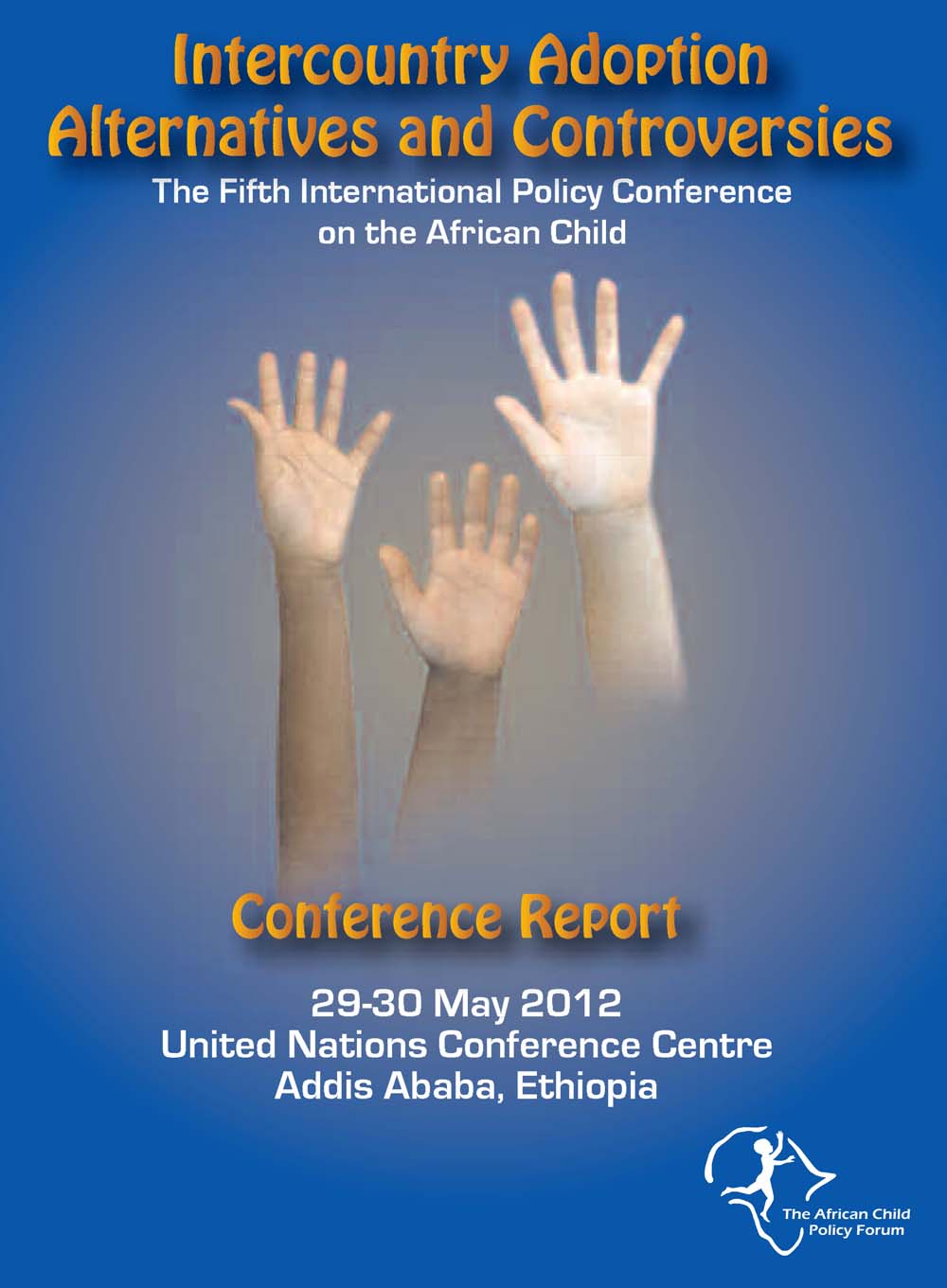It is estimated that there are over 58 million orphaned children in Africa, due to a variety of causes. The majority of these children have been absorbed into informal alternative care settings, primarily provided by extended family members, but also by the community. However, extended family and community networks, which Africa has relied on for generations, are no longer able to cope with the increasing number of children in need of alternative care. As a result, a growing number of African children are put up for adoption across the world.
Intercountry adoption is a form of adoption in which the legal parenthood of a child is transferred to adoptive parents who reside in or are citizens of another country. While global numbers of intercountry adoption have decreased in recent years, Africa is the only continent where intercountry adoption is on the increase. This trend has led to a growing concern among African governments and children’s rights advocates as serious risks and challenges have presented themselves. Although some children may benefit from the adoption system, experiences from various countries suggest that this type of adoption may have detrimental effects on children involved and is marred with serious institutional, procedural and other problems.
Against this background, the African Child Policy Forum organised the Fifth International Policy Conference on the African Child, entitled ‘Intercountry adoption: Alternatives and Controversies’. The Conference was held on 29 and 30 May 2012 at the United Nations Conference Centre in Addis Ababa, Ethiopia.
Click on the image for the full text






Leave a Reply
Want to join the discussion?Feel free to contribute!